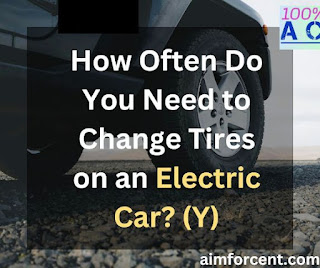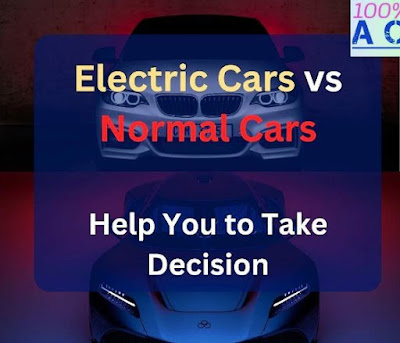How Long Does an Electric Car Battery Last?
Electric cars (EVs) have been gaining popularity in recent years due to their environmental benefits and lower operating costs than gasoline-powered cars. One question that often comes up when considering an EV is how long they last. Today, I am going to tell you about the factors that determine lifespan, the advantages and disadvantages of EVs, and lots more.
First, the Post in Brief
How long do electric cars last? The lifespan of an electric car is determined by a variety of factors, including:
- The quality of the battery
- The overall design and engineering of the car
- The driving habits of the owner.
On average, an electric car battery can last between 8 and 15 years, with some manufacturers offering up to 8 years of warranty on their batteries.
However, it is important to note that the battery’s capacity will degrade over time, which means that the range of the car will decrease as the battery ages. It is also normal for traditional gasoline-powered cars. Experts suggest EV battery ages may lose as much as 20% of their capacity in the first few years and then degrade more slowly over time.
Now Some Good Things!
Do you know electric cars have fewer moving parts compared to gasoline-powered cars? That means EV cars require less maintenance, contributing to the longer lifespan of electric cars.
- High-quality batteries and advanced engineering help to ensure long lastingness of EVs.
- Many experts regard EVs as more efficient and durable than a traditional gasoline engine, requiring less maintenance and having a longer lifespan.
On the customers’ side, most buyers prefer electric cars because these are more environmentally friendly than gasoline-powered cars. They produce zero emissions, which means that they do not contribute to air pollution and global warming.
It is not all; some factors determine the lifespan of EVs. If you are considering an electric car, you should read the following factors.
Now if you want to learn more, read all the answers in detail.
Factors that Determine the Lifespan of Electric Car
The lifespan of an electric car can vary depending on several factors. These factors can significantly impact the performance and longevity of the car and its battery.
Quality of EV Battery
The battery is the most important component of an electric car, as it stores and provides power to the electric motor. The quality of the battery can affect the overall lifespan of the car.
Batteries that are made from higher-quality materials and are manufactured to stricter standards will generally last longer than those that are made from lower-quality materials.
I always recommend buying branded cars because top-quality manufacturers offer battery warranties that can cover the cost of replacement for a certain period of time.
Use of Electric Car
The lifespan will depend on your use of your favorite car. Electric cars driven frequently and for long distances will deteriorate the battery more than those driven less often and for shorter distances.
Besides that, do you know the battery’s lifespan also depends on the speeds? Such as high speeds decaying the battery more quickly than average speed. The performance also depends on the temperature.
Lifespan also Depends on Maintenance
Proper maintenance is essential for keeping an electric car in good working condition and extending its lifespan. It includes regular battery health checks, checking tire pressure, and keeping the car clean. Additionally, it is important to ensure that the car is charged properly and that the charging equipment is in good working condition.
Cars with Latest Technologies
The latest electric cars have a longer lifespan than older models. As technology continues to advance, newer electric cars are built with more advanced features, better materials, and more durable batteries, which can all contribute to a longer lifespan.
Your Driving Habits
Lastly, driving habits also play an important role in the lifespan of an electric car. EVs are generally driven less than gasoline-powered cars, and this can also contribute to a longer lifespan.
EVs are often used as second or third cars, so they are not driven as much as primary cars.
Experts suggest the electric car’s battery is designed to last longer under light to medium use, but when driven at high speeds or in very cold or hot temperatures, the battery’s lifespan can be affected.
What is the Lifespan of an Electric Car?
The lifespan of an electric car can vary depending on a number of factors, including the quality of the battery, the amount of use the car receives, and how well the car is maintained. On average, the lifespan of an electric car battery is around 8 to 10 years, after which the battery may need to be replaced.
However, with proper maintenance, an electric car can last as long as a traditional gasoline-powered car, which can last up to 15 years or more.
Do Electric Cars Last Longer than Regular Cars?
First, if you want to buy a car, decide what your favorite one is. After that, read this segment:
Electric Vs. Gasoline Car: Battery
When it comes to the lifespan of electric cars, it is important to consider the battery, which is one of the most crucial components. The battery is responsible for storing and providing power to the electric motor, and its performance can greatly affect the overall lifespan of the car.
On average, the lifespan of an electric car battery is around 8 to 10 years, after which the battery may need to be replaced. However, with proper maintenance and regular battery health check, the battery can last longer.
Electric Vs. Regular Car: Design
When compared to traditional gasoline-powered cars, electric cars have fewer moving parts, which means less wear and tear on the vehicle. Besides, that EVs need less maintenance than regular cars.
Electric Vs. Regular Car: Pollution
Electric cars do not have the issues with emissions and pollution that gasoline-powered cars do, and they do not require regular oil changes, which can also extend their lifespan.
Electric Vs. Regular Car: Driving
You should drive electric cars less than regular cars, which increases the lifespan of the car. That means you can use EVs as second or third cars.
My Suggestions
You should visit both the stores to find a suitable car. I suggest you rely on a regular car if you want to use it daily. However, I know there are many other benefits if you purchase an eclectic car. Still, EVs should not be used as a primary option. You should consult with a local expert to understand the battery quality, mileage, maintenance, and other factors before buying a car.
How Many Batteries You Need for 2kw Solar System?
How Long Do Electric Cars Last on One Charge?
The range of the car (which means the distance an electric car can travel on one charge) depends on several factors, such as the battery and driving condition.
On average, most electric cars can travel between 100 and 300 miles on one charge. However, some electric cars, such as Tesla’s Model S and Model X, can travel up to 400 miles on one charge.
The performance also depends on the weather and speed of the car, such as extreme hot and cold weather decreasing the car’s range. Regular charging and little maintenance can help to maintain the car’s range.
What Happens to Electric Cars after 8 Years?
After 8 years, an electric car will have likely reached the end of its useful life, and it may need to be replaced. However, the condition of the car will depend on a number of factors, including the quality of the car, the amount of use it received, and how well it was maintained.
Is It Still Worth Buying an Electric Car (EV)?
Whether or not it is worth buying an electric car depends on a number of factors, including the individual’s personal preferences, needs, and circumstances. Here are a few potential benefits and considerations that you should consider before buying an electric car:
EV’s Environmental Benefits
Electric cars do not contribute to air pollution in the way that gasoline or diesel cars do. Additionally, if the electricity used to charge the car comes from renewable sources, it can have a much lower carbon footprint than a gasoline or diesel car.
Cost Savings after Buying an EV
Electric cars can save you money in the long run. The cost of electricity is generally less expensive than gasoline, and electric cars have fewer moving parts, so they require less maintenance.
Government Incentives
Some states offer financial incentives, tax breaks, and other perks to encourage the purchase of electric cars. This can make buying an electric car more affordable.
Convenient Charging
Electric cars can be charged anywhere- at home, workplaces, or public charging stations. Many charging stations are now available in convenient places like grocery stores, parking garages, and highway rest areas.
Driving Experience
Electric cars are quiet and smooth, which makes a more enjoyable driving experience.
It sounds great! Right?
If you have read all of these segments of our discussion, it is the right time to tell you about the disadvantages of EVs.
Indeed, you should consider it too!
What are the Disadvantages of Buying an Electric Car?
There are a few potential disadvantages to buying an electric car, including:
Limited Range
Electric cars typically have a limited range compared to gasoline or diesel cars, which means you need to plan your trips more carefully and may need to stop and recharge more frequently.
Charging Time
Charging an electric car can take longer than filling up a gasoline or diesel car, and it is not always possible to find charging stations when you need them.
Battery Degradation
The battery’s capacity and range can degrade over time, which can affect the car’s performance. That is why I recommend buying back up batteries in electric cars.
Higher Upfront Cost
Electric cars can be more expensive than gasoline or diesel cars, especially when you factor in the cost of the battery.
Limited Model Availability
There are fewer models of electric cars available than gasoline or diesel cars, which means there may be fewer options to choose from.
Inconvenience
If you are an electric car owner, you may face inconvenience in case of power outages, it can cause the charging station to stop working, and you may have to wait for the power to be restored.
I hope, I have resolved all your issues regarding electric car (EV) lifespan, determining factors, advantages and disadvantages. Please do not forget to comment your favorite EV model in the comment section.
Read More,
How Many Batteries Do You Need for 15kw Solar System?
Meet Rohan, a writer who loves to inspire and motivate others. He’s all about those feel-good quotes that can light up your day! When he’s not crafting words of encouragement, Rohan dives into the world of the latest technologies, exploring what’s new and exciting. But that’s not all—his heart beats for solar products, the kind that harness the power of the sun for a greener future. And guess what? He’s a total pet lover too! When he’s not busy writing, you’ll find Rohan surrounded by his furry friends, spreading joy and cuddles all around. Follow Rohan on Twitter and Facebook





